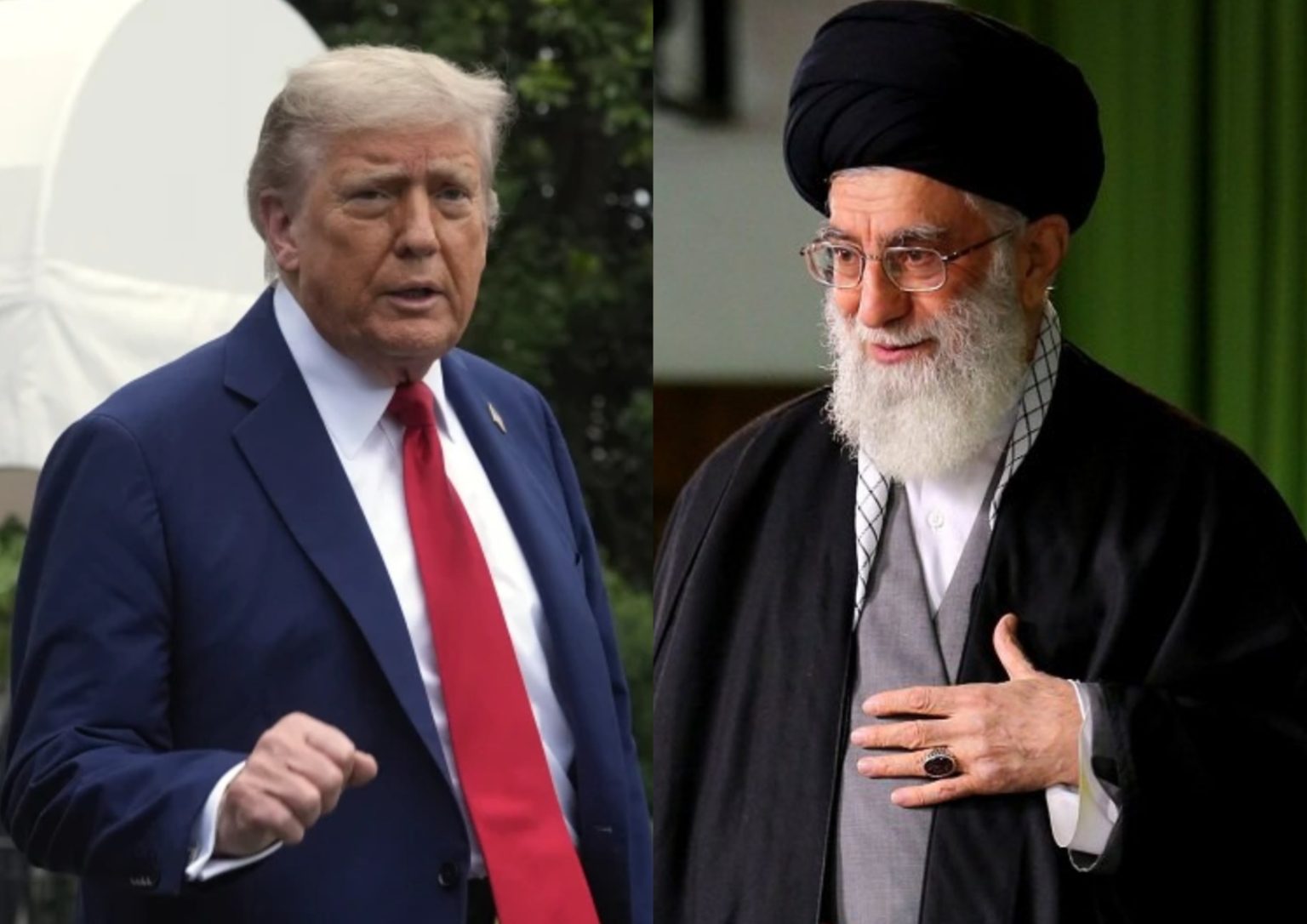US President Donald Trump said on Friday that he expects Iran to open itself to international inspection to verify that it does not restart its nuclear program.
President Donald Trump on Friday scoffed at Ayatollah Ali Khamenei’s heated warning to the US not to launch future strikes on Iran, as well as the Iranian supreme leader’s assertion that Tehran “won the war” with Israel, reports AP.
The US president spoke out a day after Khamenei insisted Tehran had delivered a “slap to America’s face” by striking a US air base in Qatar and warned against further attacks by the US or Israel on Iran. Khamenei’s pre-recorded statement, which aired on Iranian state television, was the first time that Iranians had heard directly from the supreme leader in days.
Trump said that the American attacks “completely and fully obliterated” Iran’s nuclear program. However, Khamenei on Thursday accused the US president of exaggerating the damage, saying the strikes did not “achieve anything significant.”
In response, Trump told reporters Friday that the sites were “bombed to hell.” He even directed a message to the supreme leader: “Look you’re a man of great faith. A man who’s highly respected in his country. You have to tell the truth. You got beat to hell.”
Asked during a White House news conference if he would demand during expected talks with Iran that the International Atomic Energy Agency, the UN nuclear watchdog, or some other organisation be authorised to conduct inspections, Trump responded that the Islamic Republic would have to cooperate with the group “or somebody that we respect, including ourselves.”
Earlier, Iran’s top diplomat said that the possibility of new negotiations with the United States on his country’s nuclear program has been “complicated” by the American attack on three of the sites, which he conceded caused “serious damage.”
The US was one of the parties to the 2015 nuclear deal in which Iran agreed to limits on its uranium enrichment program in exchange for sanctions relief and other benefits. That deal unraveled after Trump unilaterally pulled out the US during his first term.
Trump has suggested he is interested in new talks with Iran and said the two sides would meet next week.
In an interview on Iranian state television broadcast late Thursday, Iran’s Foreign Minister Abbas Araghchi left open the possibility that his country would again enter talks on its nuclear program, but suggested it would not be anytime soon.
“No agreement has been made for resuming the negotiations,” he said. “No time has been set, no promise has been made, and we haven’t even talked about restarting the talks.” The American decision to intervene militarily “made it more complicated and more difficult” for talks on Iran’s nuclear program, Araghchi added.
During the war with Israel, Iran hanged several people whom it already had in custody on espionage charges, sparking fears from activists that it could conduct a wave of executions after the conflict ended. Authorities reportedly have detained dozens in various cities on the charge of cooperating with Israel.
Israel relentlessly attacked Iran beginning on June 13, targeting its nuclear sites, defense systems, high-ranking military officials and atomic scientists.
In 12 days of strikes, Israel said that it killed around 30 Iranian commanders and 11 nuclear scientists, while hitting eight nuclear-related facilities and more than 720 military infrastructure sites. More than 1,000 people were killed, including at least 417 civilians, according to the Washington-based Human Rights Activists group.
Iran fired more than 550 ballistic missiles at Israel, most of which were intercepted, but those that got through caused damage in many areas and killed 28 people.
A senior Israeli military official said Friday that their intelligence shows that Israel’s strikes on various targets neutralised Iran’s ability to enrich uranium to 90% for “a prolonged period.” It was unclear whether that contradicted a preliminary US report that suggested the program had been set back months.
There has been speculation that Iran moved much of its highly-enriched uranium before the strikes, something that it told the IAEA that it planned to do.
Even if that turns out to be true, IAEA Director-General Rafael Mariano Grossi told Radio France International that the damage done to the Fordo site, which was built into a mountain, “is very, very, very considerable.”
Among other things, he said, centrifuges are “quite precise machines,” and it is “not possible” that the concussion from multiple 30,000-pound bombs wouldn’t have caused “important physical damage.” “These centrifuges are no longer operational,” he said.
Araghchi himself acknowledged “the level of damage is high, and it’s serious damage.” He added that Iran had not yet decided whether to allow in IAEA inspectors to assess the damage, but they would be kept out “for the time being.”
US Mideast envoy Steve Witkoff earlier this week said there has been direct and indirect communication between the countries. A sixth round of US-Iran negotiations was scheduled for earlier this month in Oman but was canceled after Israel attacked Iran.
Trump expressed confidence that Iran’s nuclear ambition has faded. “Can I tell you, they’re exhausted. And Israel’s exhausted, too,” Trump said. He added, “The last thing they’re thinking right now is nuclear.”


